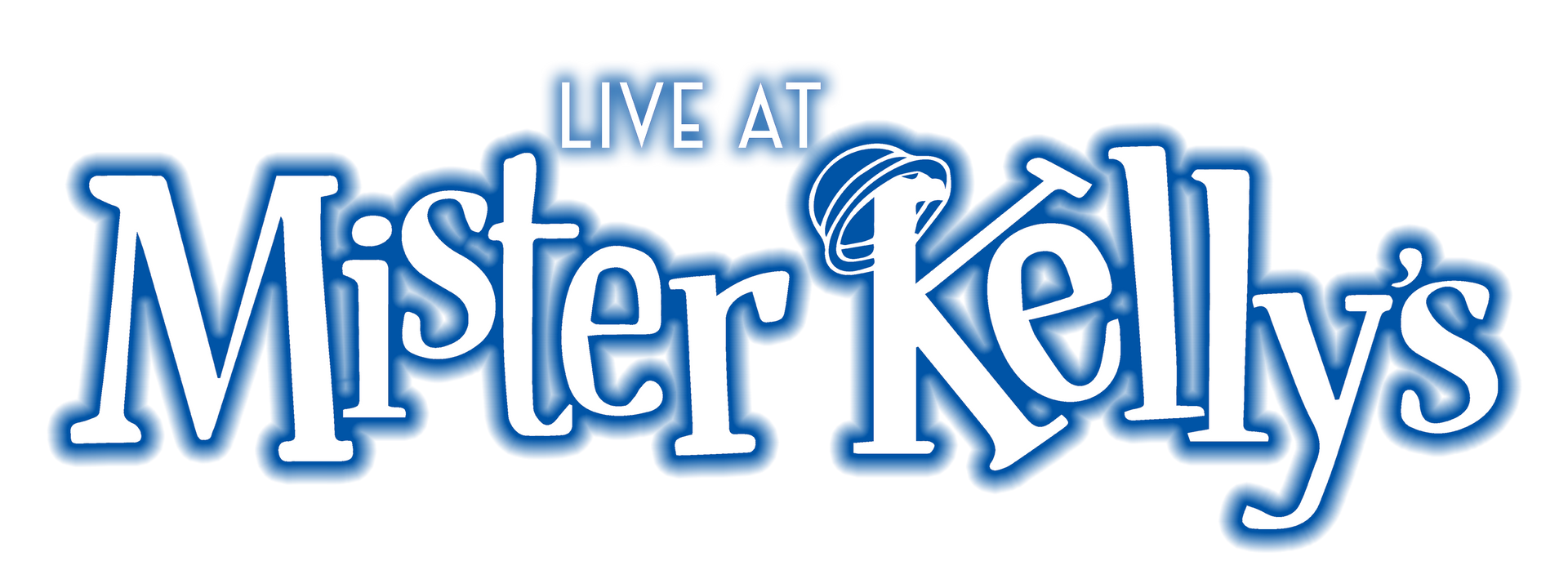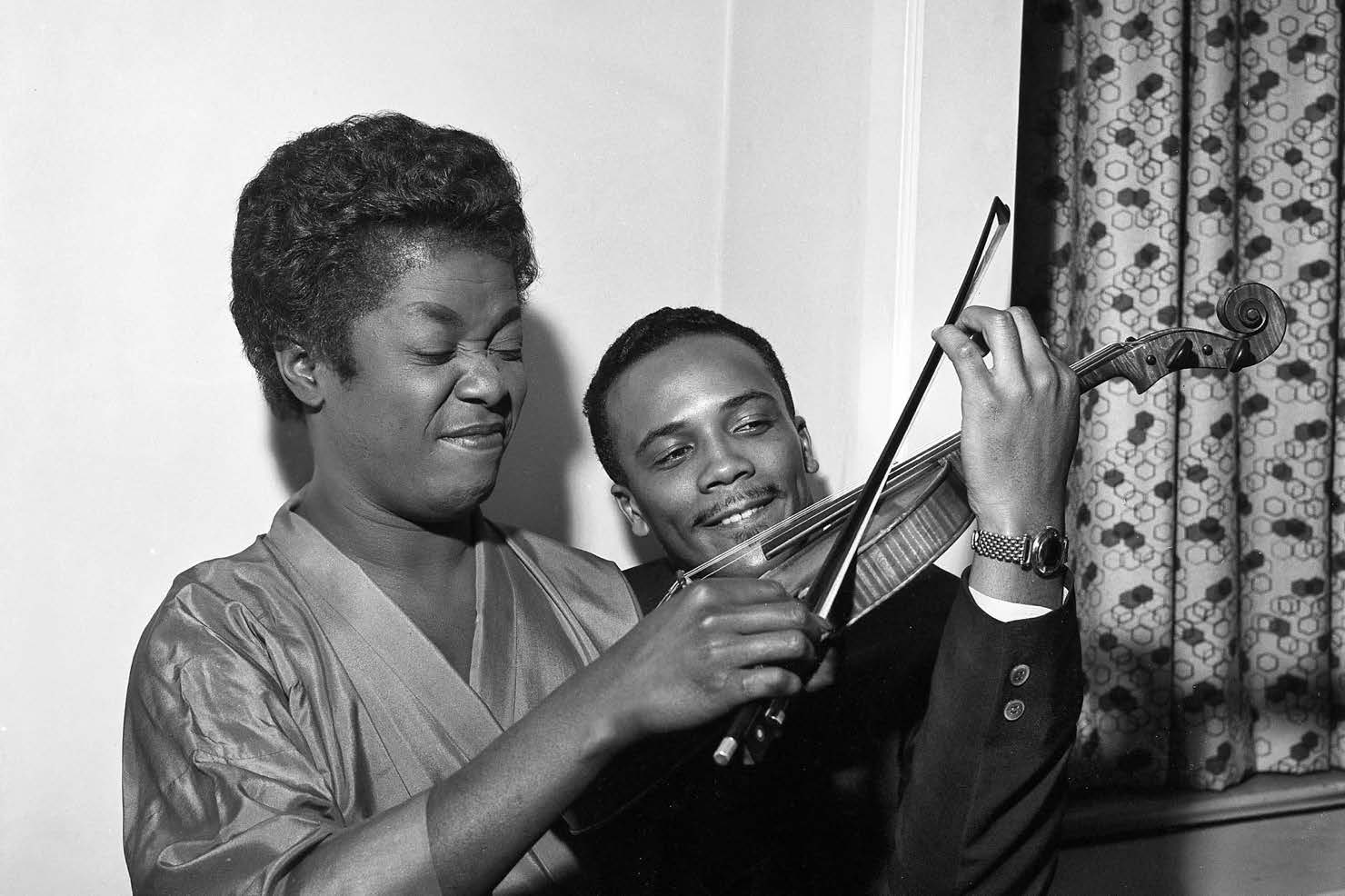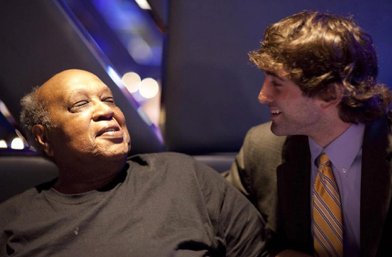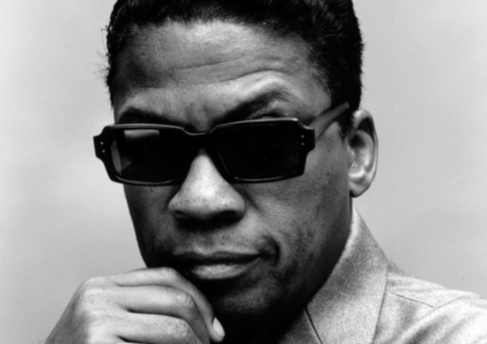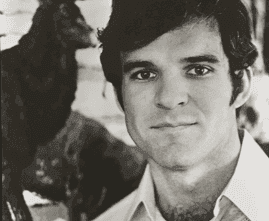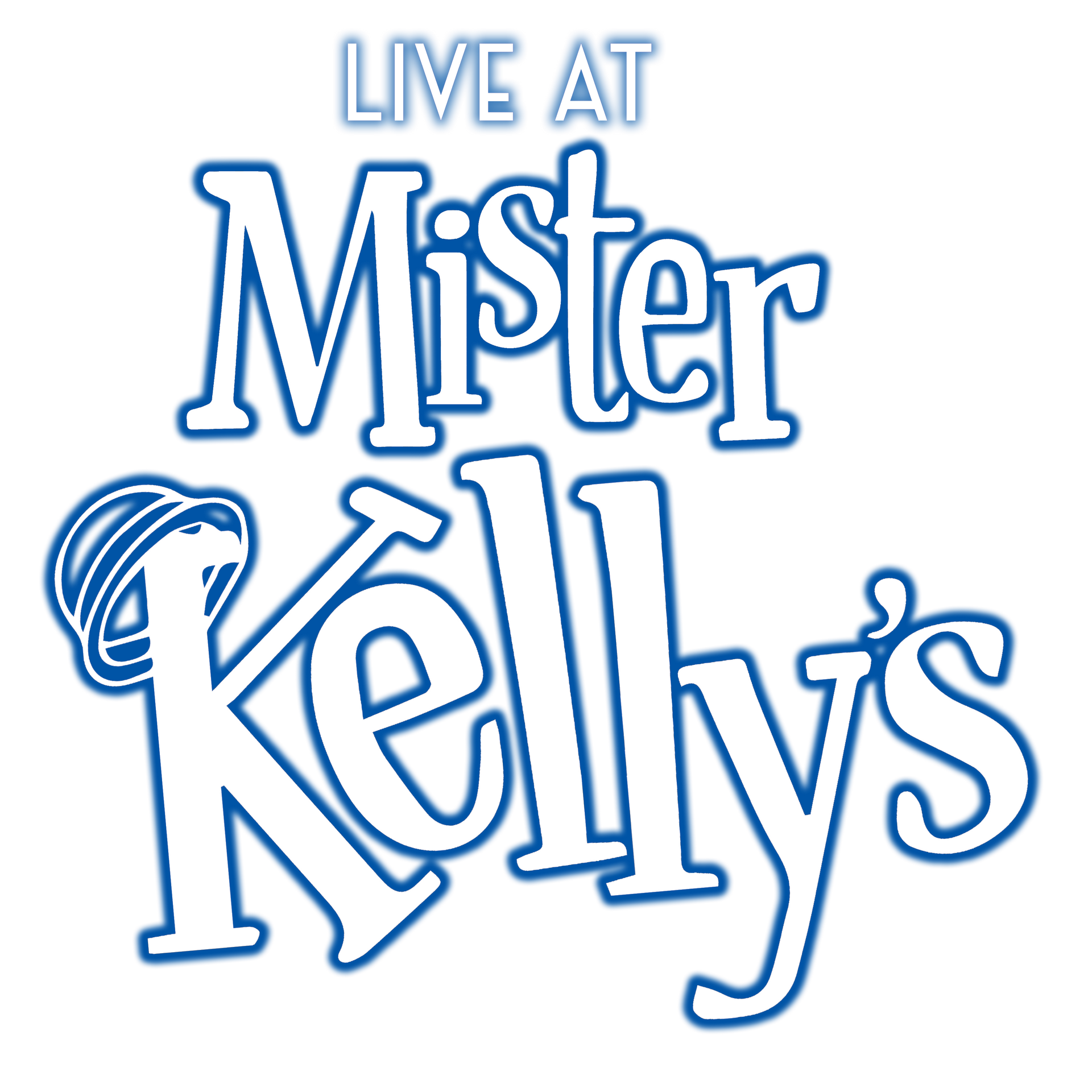The Richard Pryor Ultimatum: George Marienthal's Line in the Sand
- By David Marienthal and Tory Foster
- •
- 25 May, 2017
- •
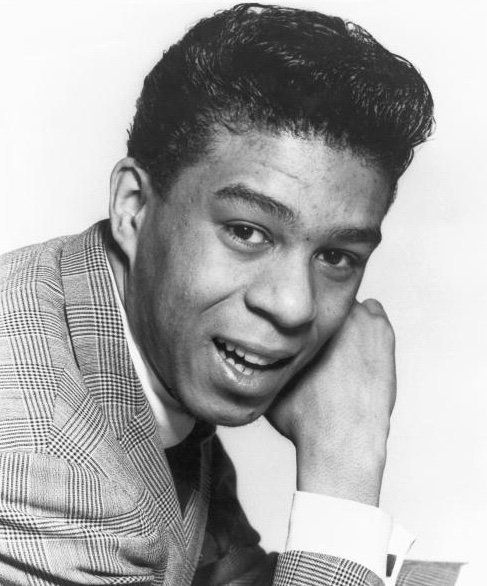
Mister Kelly's is excited to welcome our newest young guest-blogger, Historian Adam Carston: Simply put, there is American comedy before Richard Pryor, and American comedy after Richard Pryor. With his combination of fearless honesty, provocative language, streetwise cool, and political savvy, he separated himself from other stand-ups. In the process, he also inspired a generation of comedians and cut a new path for them to travel. But Pryor’s famous, challenging persona was not born overnight. It took years of hard work and experience, and a good measure of pain and go-to-hell abandon to fully define it. While there are multiple chapters in Richard Pryor’s emergence as a cultural icon, some key moments that would help shape his career, worldview and revolutionary comedic style took place at none other than Chicago’s entertainment hot spot on the forefront of political change: Mister Kelly’s.
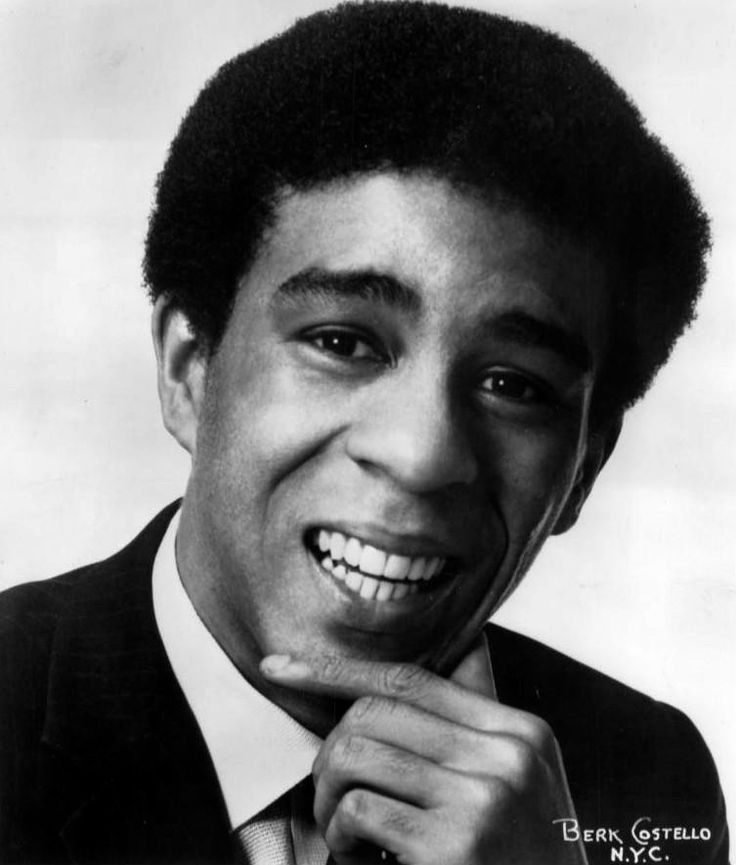
The Road to Kelly's
Richard Pryor began his comedy career in the small clubs in his hometown of Peoria, Illinois in the early 1960s. Eventually, he decided to leave home to hone his skills as a road comedian. His early shows were for mostly segregated audiences, the jokes fell within certain accepted cultural boundaries, and the pay was low. Pryor often lived hand to mouth in between gigs, but he was developing as a young comedian. Here he is at the Kraft Music Hall in 1964.
During these early days, Pryor became aware of another young black comedian by the name of Bill Cosby. Cosby was doing something that many black comics only dreamed of: crossing over to audiences of all colors. Cosby did this by deliberately playing hip coffee houses and clubs, where segregation was less prevalent, and performing a clean, inoffensive and nonpolitical act. Seeing Cosby’s success, Pryor quickly mimicked these methods.
The Cosby model served Richard Pryor very well in his early career. He began appearing on high profile programs like The Ed Sullivan Show and The Merv Griffin Show throughout the 1960s. He even saw success at the same hip clubs as Cosby. Mister Kelly’s was among them, and he became a recurring act. While he used Cosby as an inspiration, it should be said that Pryor was already exceptional in his own right. Comedian Tim Reid remembers being inspired by Pryor when he watched him perform at Kelly’s and thought to himself: “I want to do that.”
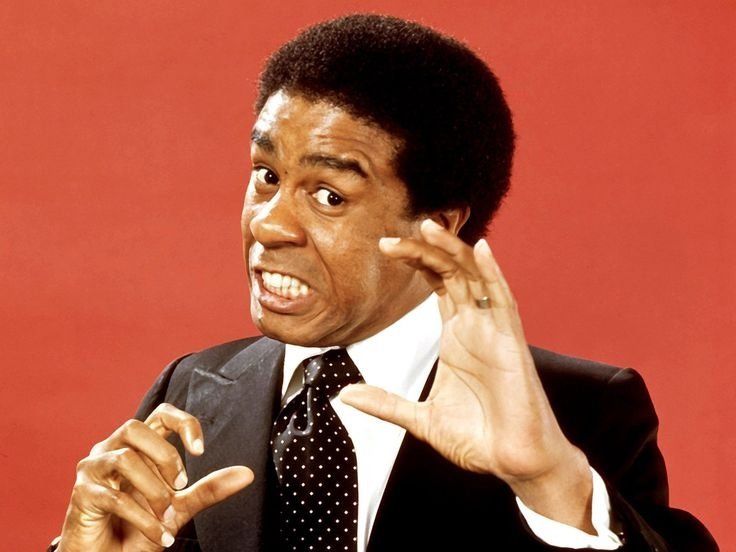
The Injustice that Transformed His Act
Pryor was in the midst of a
multi-week engagement at Mister Kelly’s on April 4, 1968, when everything
changed. The first show of the night went off without a hitch, but in
between shows, tragic news reached those in the club. Kenny Rogers, whose
band was the opener, recalls that fateful evening as: “the night that Martin
Luther King Jr. got killed.”
Mister Kelly’s booker, Jeff Wald, spent the rest of the night with Pryor trying to make sense of what had happened. The two smoked a joint together and then “drove around Chicago like lunatics,” as the city and nation tore itself apart. Wald recalls Pryor sobbing, coping with the madness of the event. Like many Americans, that April night would change Pryor forever.
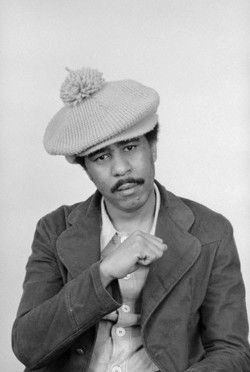
A Political Point of View
While his act was apolitical in nature, Pryor was politically conscious in his personal life, interested in Malcolm X, Angela Davis, and Eldridge Cleaver. He donated thousands to the Black Panther Party. The significance of MLK’s death was so profound it caused his private and professional life to merge on that April night. He could no longer be someone he was not.
This transformation was immediately evident in Pryor’s act. Shortly after the assassination, Pryor was booked for a star-studded MLK benefit show at the Hollywood Bowl. The once clean comic disappeared that night. Pryor’s set was laced with vulgar language and passionate political rhetoric that shocked the Hollywood elite: “All these people here are giving money,” he said, “but if your son gets killed by a cop, money don’t mean shit.”
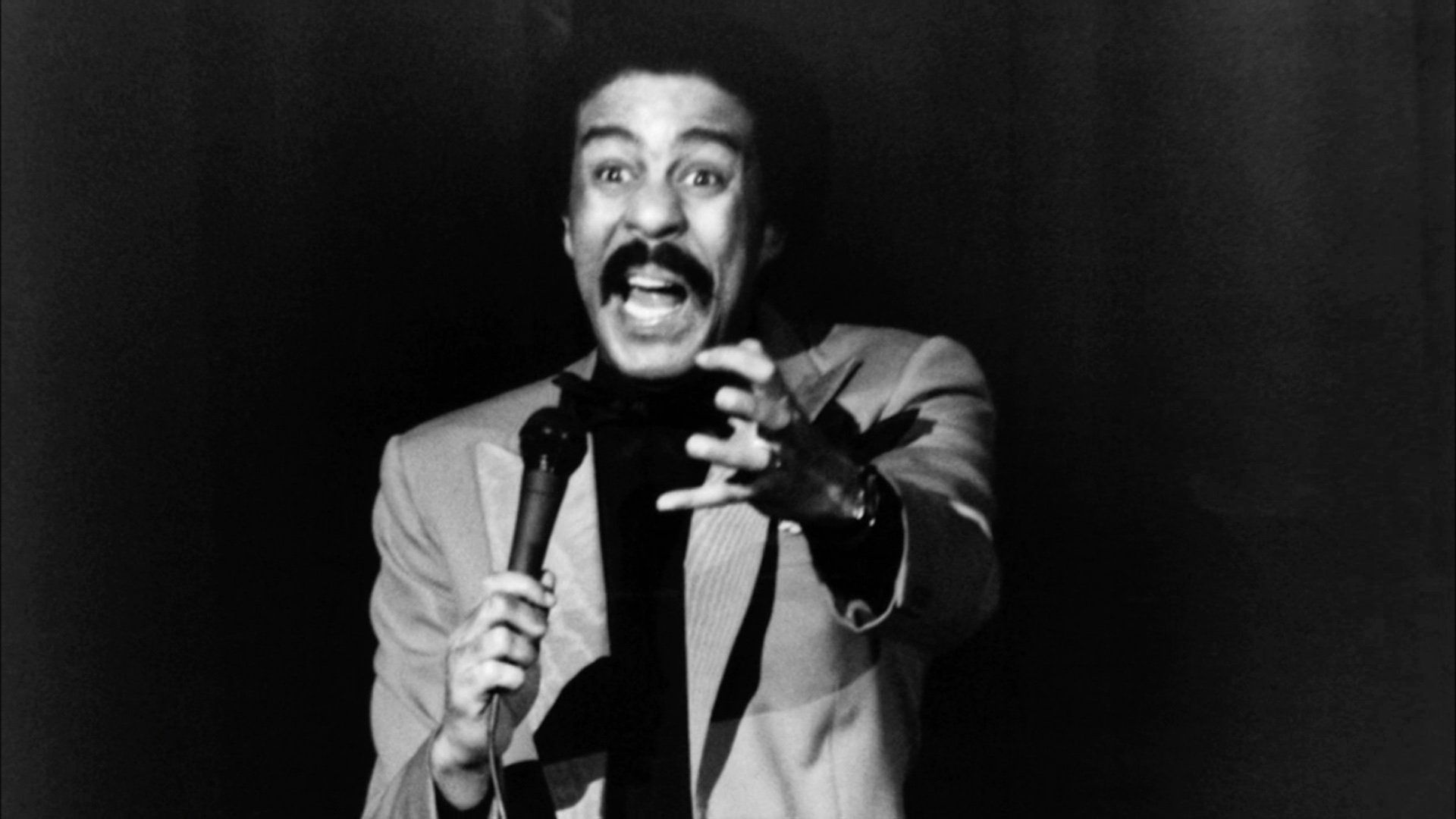
George Marienthal and the Ultimatum
After the Hollywood Bowl show, these features became an integral part of Pryor’s act. No longer a Cosby clone, Pryor had found his own voice; but it was a voice that scared many people. Pryor was exploring areas of race, sex, and politics that many were still uncomfortable with. Expressing his frustration, Pryor said: “The deeper you get, the more uptight they get. It scares them. They haven’t heard this stuff. But it’s the truth.”
Richard Pryor was setting the world on fire with his cutting edge humor for a year or so before he returned to Mister Kelly’s. His next scheduled appearance at the club would be a multi-date run starting December 26, 1969. A few days before arriving in Chicago, however, Pryor got a call from owner George Marienthal. What happened next is up for debate, but the conversation changed their relationship.
What is known is that some disagreement over Pryor’s act occurred. Marienthal had heard that Pryor was working “blue” and he was worried about how it would affect the club’s reputation in light of the attitudes of his audience. He urged Pryor to perform clean material, as he’d done before. Refusing to budge, Pryor gave an ultimatum; either he performed his new material or no appearances. The upshot? Richard Pryor never played at Mister Kelly’s again.
While the death of MLK may have pushed Pryor to change, canceling these shows at Mister Kelly’s completed his transformation. Pryor seldom played supper clubs after that, as he transitioned into a juggernaut of comedy in the 1970s. Though Richard Pryor and Mister Kelly’s parted ways, for a few glorious years in the 1960s they both played an intricate part in the other’s history.
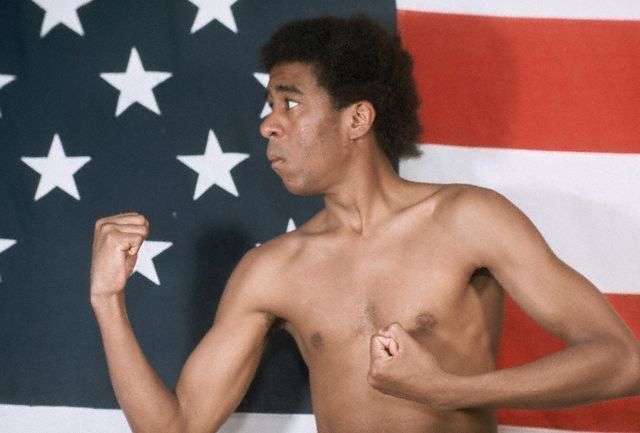
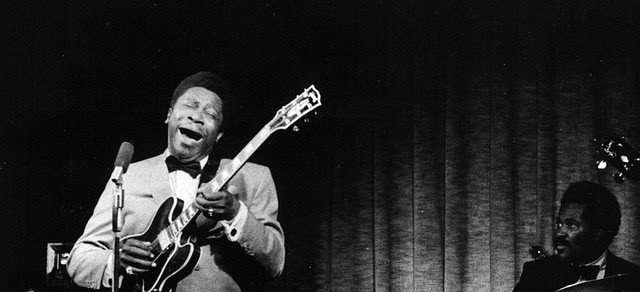
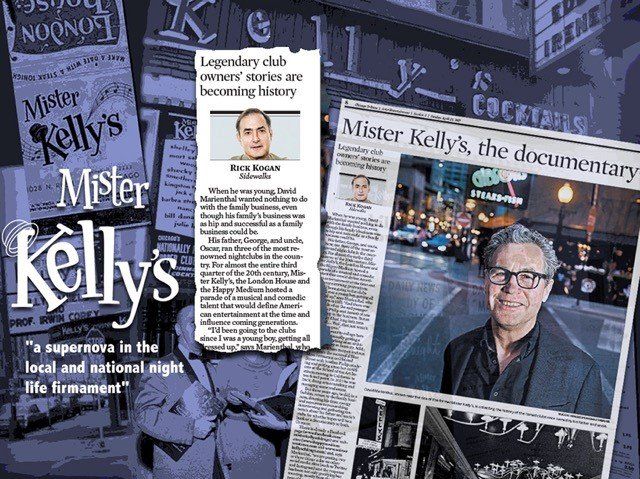
When he was young, David Marienthal wanted nothing to do with the family business, even though his family's business was as hip and successful as a family business could be.
His father, George, and uncle, Oscar, ran three of the most renowned nightclubs in the country. For almost the entire third quarter of the 20th century, Mister Kelly's, the London House and the Happy Medium hosted a parade of a musical and comedic talent that would define American entertainment at the time and influence coming generations.
"I'd been going to the clubs since I was a young boy, getting all dressed up," says Marienthal, who was born in 1951. "And there was some talk of us (he and younger brothers Philip and James) of one day getting in the business. But as a teenager I had long hair, torn jeans and …. Well, that just wasn't going to happen."
So off he went to college here and there, eventually getting a degree and working as an architect and builder in Sante Fe, N.M.; coming back here to open and run for 17 years the successful Blue Mesa restaurant on Halsted Street with brother Philip; studying and getting a teacher certificate at the School of the Art Institute; moving to California to teach and paint. In 2010 he was back, doing arts consulting and managing some real estate.
But three years ago, he did, in a fashion, return to the family business, devoting his time, energy and resources to researching, interviewing and gathering materials about his father and uncle's clubs for what he hopes will be a book or a documentary or both. Or more.
There is already a Facebook page ( www.facebook.com/misterkellyschicago ) and websites ( www.happymediumventures.com and www.misterkellyschicago.com ) and, says Marienthal, "we are posting two or three things a day on other social media sites (such as Twitter and Instagram) and the response has been not only gratifying but amazing, mostly from the 18-35 year old crowd."
This is how he puts a possible TV series — already with a script being pitched to producers — on his website:
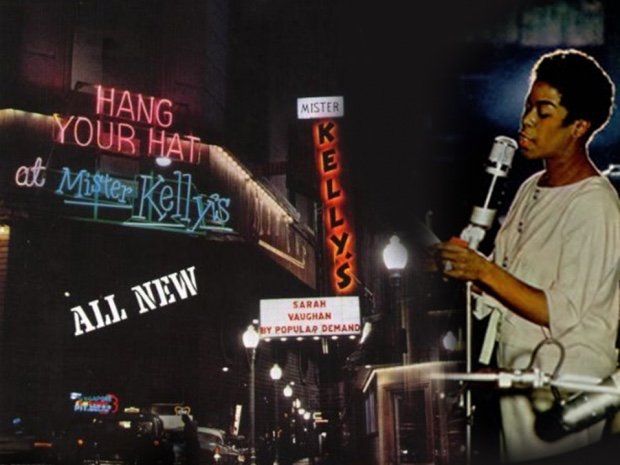
Join us to support the legacy of Mister Kelly's and the documentary film being produced by David Marienthal with WTTW Chicago Public Media, directed by Philip Koch.
This two-act concert features Kimberly Gordon, Sophie Grimm, Lynne Jordan, Frieda Lee, LaShera Moore, Daryl Nitz, Jeannie Tanner, and Ellen Winters. Musical direction by Andrew Blendermann, with Joe Policastro on bass, Phil Gratteau on drums. Special guest performance by a Chicago high school student protege from ChiArts.
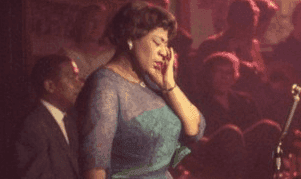
Happy Medium Ventures and Daryl Nitz Entertainment present:
Ella Live at Mister Kelly's: a benefit performance and preview for the documentary film, “Mister Kelly’s: Wasn’t It a Time?”
Monday, January 29, 2018
City Winery Chicago at 1200 W. Randolph Street, Chicago, IL 60607
$25-$40
For tickets go to Ella at Mister Kelly’s
Ella Live at Mr. Kelly's
On August 10, 1958, Ella Fitzgerald recorded her “Live at Mister Kelly’s” LP. In 2007 the concert was remastered and re-released in its entirety, including the early and late sets. This Ella centennial celebration concert presents the entire concert, without song duplication, of both sets. Featuring such songs as "Nice Work If You Can Get It," "The Lady Is a Tramp," "Summertime," "Witchcraft," "Come Rain or Come Shine," "Stardust," and many more from the classic American songbook of Gershwin, Rodgers & Hart, Porter, and others. Featuring Sophie Grimm, Lynne Jordan, Frieda Lee, Liz Mandeville, LaShera Moore, Daryl Nitz, Alina Taber, and Ellen Winters. Musical direction by Andrew Blendermann, with Joe Policastro on bass, Phil Gratteau on drums.
Mister Kelly’s: Wasn’t It a Time
Mister Kelly’s Once called a “supernova in the local and national night life firmament,” the legendary Mister Kelly’s illuminated legendary Chicago’s Rush Street, and the entire country, by launching talent like Barbra Streisand, Woody Allen, Bette Midler, Herbie Hancock, and Richard Pryor. It’s visionary owners George and Oscar Marienthal smashed color and gender barriers to put fresh, irreverent voices on stage and transform entertainment, as America knew it in the 50s, 60s, and ’70s.
Now, with the club long gone, and its star talent reaching its golden years, George’s son David, goes on a quest to collect the memories of the clubs before they are lost. Celebrity interviews now include Bob Newhart, the Smothers Brothers, Dick Gregory, Lainie Kazan, Dick Cavett, Shecky Greene and Ramsey Lewis. Interviews with dozens of local musicians, staff, family, and patrons provide a delightful balance with engaging stories, rich with vintage detail. Discussions are underway to interview Woody Allen, Lilly Tomlin, Bette Midler, Barbara Streisand, Steve Martin and others.
The film will portray through interviews, live footage, photos, music, and song, the most beloved and famous talent of our time at the decisive moments when they showed up, dug deep, and broke in. How do you change the world with a laugh and a song? Find out in a film that documents the rise and fall of one of American entertainment's great proving grounds.
Check out the hot sizzle reel and read Rick Kogan’s story in the Chicago Tribune and the links below for more about this exciting new film.
• Chicago Tribune Story: http://trib.in/2pZT07H
• Website: http://www.misterkellyschicago.com
• Facebook : https://www.facebook.com/misterkellyschicago
Happy Medium Ventures is the leading curator and steward of legendary Chicago nightlife venues, London House, Mister Kelly’s, the Happy Medium, and the Rush Street scene, from 1946-1970’s; the epicenter of Chicago’s entertainment scene. Today, Happy Medium Ventures is reviving this bygone era for a new generation of fans through an unprecedented collection of photos, recordings, press clipping. First-person interviews include key players in the Rush Street scene — from celebrity performers at London House, Mister Kelly’s and other Rush Street venues, to the employees behind the scenes, patrons of the nightspots, family and friends. Happy Medium Ventures aims to capture the fun and excitement through a documentary film, a new TV series, vibrant social media and other original content about this captivating chapter of Chicago history.
Daryl Nitz Entertainment is an event-concert production company specializing in shows that celebrate cultural anniversaries and historical recreations. Operating since 2004, with such show as “Judy at Carnegie,” “Voices of Chicago,” “Ladies Sing the Blues: a centennial birthday concert for Billie Holiday,” “It Was a Very Good Year: a centennial birthday concert for Frank Sinatra,” “Above Us Only Sky: John Lennon at 75,” “That’s Amore: a Dean Martin centennial celebration” and many more.
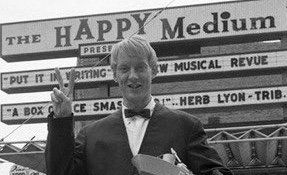
The
Mister Kelly’s team is overwhelmed by the incredibly talented and generous
people that we have met, while creating our archive of the Marienthal Brother’s
legendary nightlife empire. From colorful Rush St. regulars to famous
performers, and everyone in-between, it has been a thrill. One of the most exciting encounters has been
working with the renowned photographer, Art Shay. At the age of 95, Art is truly a legend in
his own time.
Shay began his career as a writer and journalist, but after showing a great eye for capturing images, soon transitioned into a career as a photographer. Based out of Chicago, he became one the nation premier photographers, working for major publications such as Life, Time, and Sport Illustrated. Art Shay photographed everything, from historic moments (1968 Democratic Convention) and iconic personalities (Muhammad Ali, The Rat Pack, President Kennedy), to street photography that captured the everyday life of average Americans. In the process he became one of the most celebrated artists of his medium and a Chicago legend.
In light of this, we were honored when Mr. Shay was kind enough to donate one of his brilliant works to our project recently. The print is a wonderful slice of Chicago’s Rush Street from the 1960s. The photo was taken outside of The Happy Medium and features actor Tom Williams dressed as a child, holding a toy boat.
Why is a grown man dressed as a child? Why a toy boat? Well, this can be explained. Tom Williams was part of was a comic review, produced by the Marienthal Brothers, called Put it In Writing . In the political satire, Williams plays America’s youngest president (an obvious nod to the newly elected JFK), who still has some childlike features. Put it in Writing would become the biggest play to originate at The Happy Medium and, after a long run in Chicago, it eventually made its way to New York for an off-Broadway production.
We are humbled to receive this generous gift from such a preeminent artist. The photo is a brilliant image of mid-century Chicago history, from one of the men who documented it best. The photo will be cherished and used in our mission to record this unique piece of Chicago and American history. We wish to give a heartfelt thank you to our friend Art Shay, who contributed this beautiful photo to the Mister Kelly’s archive.
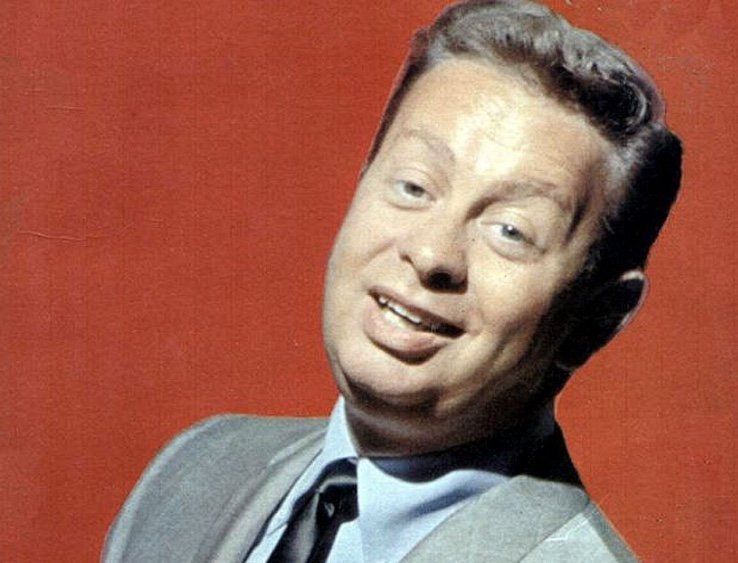
Guest Blogger Sam Fazio is a popular Chicago vocalist. He writes about Chicago’s own Mel Tormé, who appeared at Mister Kelly’s many times over the years.
A Kid from the South Side
Born Melvin Howard Tormé in 1925 on the south side to Jewish Russian immigrants, he started singing at a very young age of four with the Coon-Sanders Orchestra, performing at Chicago's Blackhawk restaurant. He continued his early career on radio series, playing drums and writing songs—all before high school graduation.
